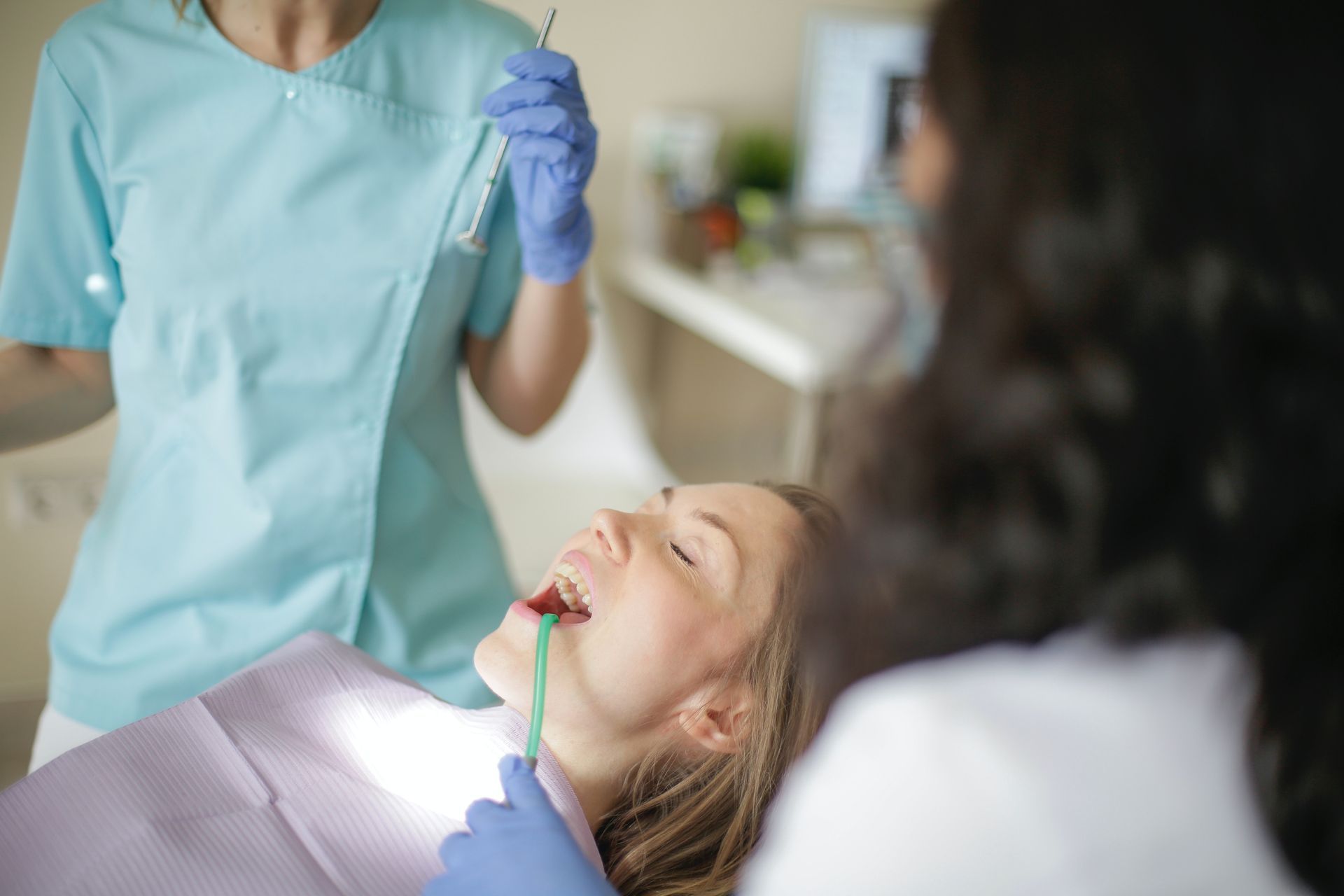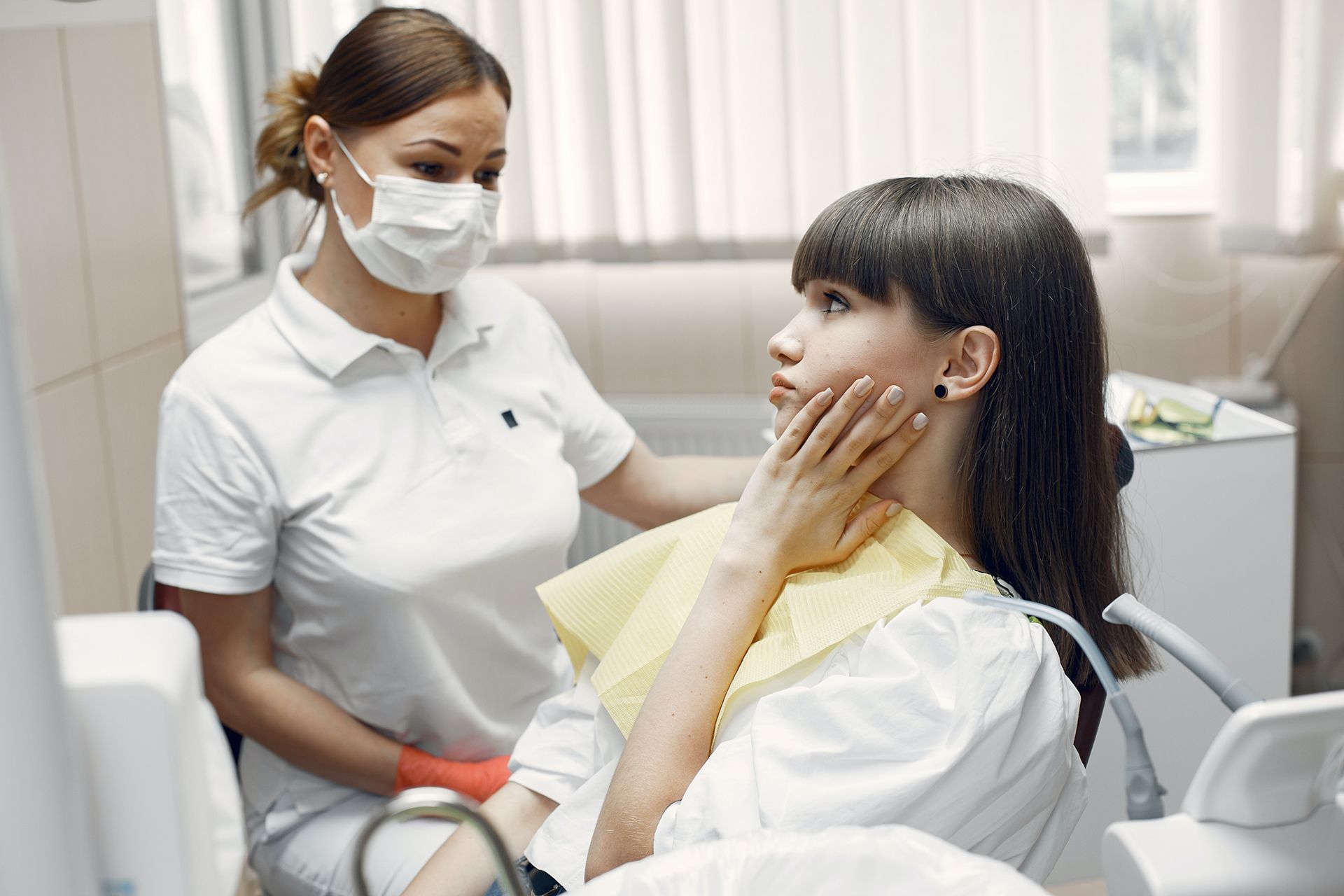3/142-152 Mawson PL, Mawson ACT 2607
Exciting news everyone! Our practice expansion is all done and ready, with better facilities, state of the art equipment but with the same fantastic patient care, we are oh so proud of!
Exciting news everyone! Our practice expansion is all done and ready, with better facilities, state of the art equipment but with the same fantastic patient care, we are oh so proud of!
Dental anxiety how to overcome for a positive dental experience

Does your child feel self-conscious or anxious whenever you go to a dental checkup? It's important to understand that feelings of anxiety about dental appointments are common and normal, especially among children. Good thing, there are plenty of ways to overcome and manage dental fear.
If you are a parent who has a child with dental anxiety and you are looking for a trusted dentist in Canberra, this article is for you. In the following sections, we’ll discuss some techniques and strategies that can help turn your child's fears into a positive dental experience. Continue reading to discover valuable insights and guidance.
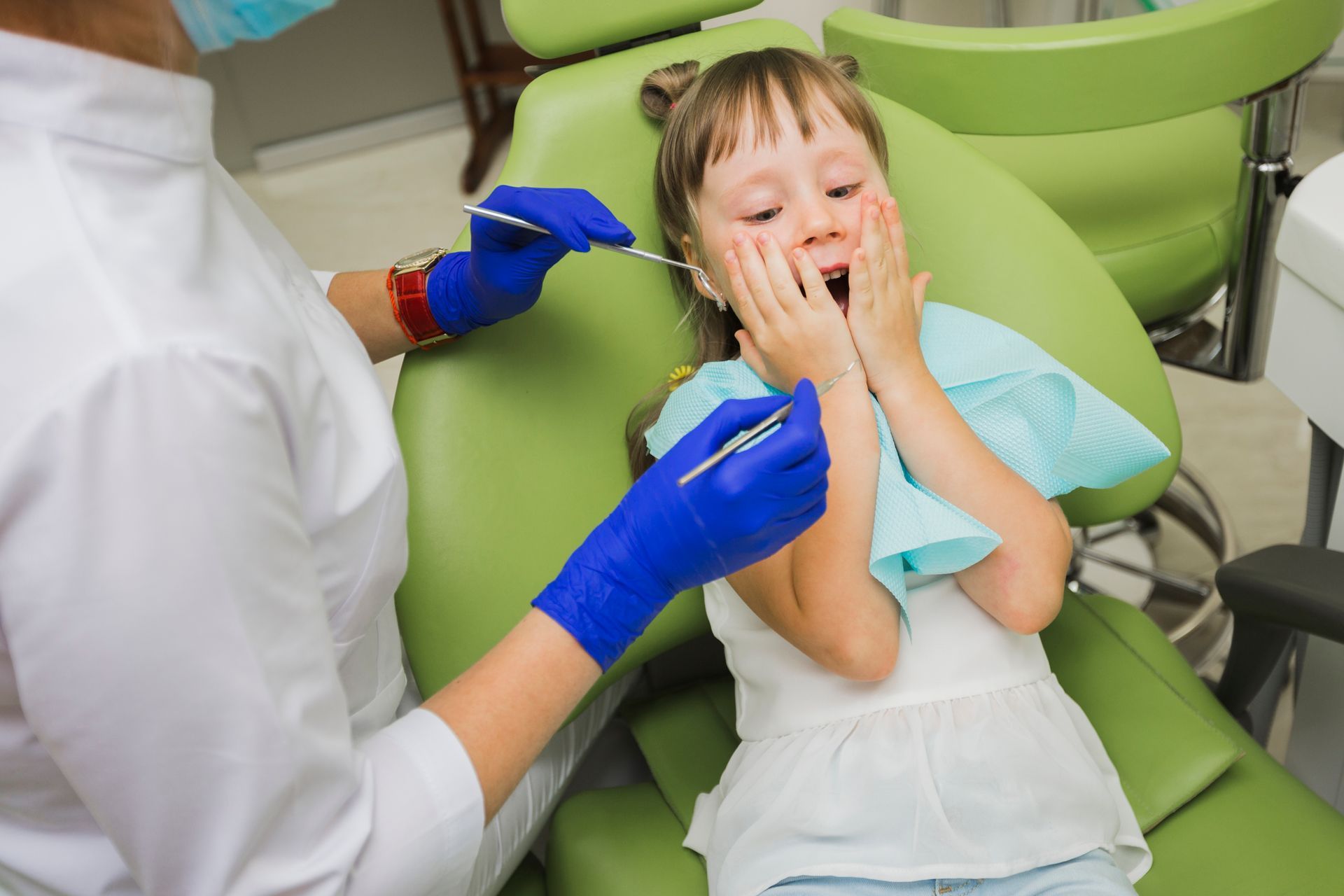
Image by Freepik
How can I relieve dental anxiety?
There are several ways to relieve dental anxiety, including:
Schedule Regular Dental Check-Ups
Children who experience dental anxiety should visit regular dental check-ups to overcome their fear of the dentist. An early dental visit serves as a foundation to assess a child's oral health and increase the chances of early detection of any potential issues before they escalate into serious problems.
Although it's not necessary to attend dental checkups every week, it is important to establish a consistent schedule for regular checkups every six months. This routine can help your child become familiar with the dentist, the office staff, the dental chair, and the overall dental environment. By doing this, you are providing your child with a sense of security and safety every time they visit the dentist. Hence, children develop an understanding that the dentist is an integral part of their life.
Choose the Right Dentist
Choose the right dentist for your child, particularly one who has a positive rapport with children, especially those who experience dental anxiety. Aside from this, it's also important to note that the choice of a dentist covers more than just the dental professional themselves. The dental environment can also significantly influence a child's ability to relax during a dental visit. Make sure that the dental setting is comfortable for your child.
For many children, particularly those who have sensitive senses, even the sound of dental instruments can easily trigger their dental anxiety. If you think that your child's dental phobia is caused by a dentist or the dental office, it is advisable to explore an alternative dental practice that can provide treatment options tailored to your child's needs.
Relaxation Techniques
As early as now, you can teach your children to practice deep breathing and relaxation technique to help them manage their dental fear. One popular technique that can benefit all anxious and phobic patients is relaxation through paced breathing. Paced breathing involves various methods and variations that can be utilised to promote relaxation.
Using this technique, patients can engage in slow, deep breaths, where they hold each breath for approximately 5 seconds before exhaling gradually. This slow and steady breathing technique, when practised for 2-4 minutes, has proven effective in reducing heart rate and significantly increasing comfort levels for anxious patients.
Distraction techniques
Evidence suggests that directing attention towards alternative visual or auditory stimuli within the dental clinic can be beneficial for patients with dental phobia. This is why you can observe that other clinics include background music, television sets, computer games, and even 3D video glasses for watching movies in order to distract the patient from dental procedures.
Another technique that some dentists use is cognitive behavioural therapy, which helps nervous patients change the way they think and feel regarding a dental visit, by educating them about procedures and helping them to stay relaxed throughout the entire procedure. This therapy is usually accompanied by other relaxation techniques such as deep breathing and progressive muscle relaxation. These alternative methods provide potential avenues for reducing anxiety and improving the overall dental experience of your child.
Set a good example
Parents who visit dental checkups regularly and exercise good oral health can play a significant role in alleviating dental phobia and anxiety. When children see their parents comfortably attending a dental practice, it can instil a sense of confidence in them. In certain cases, you may also allow your child to observe you during a dental visit. But be sure to be cautious when bringing them to your appointments so they won't have to witness any type of painful treatment. If you are also prone to dental anxiety, it is best to leave your child at home so they won't be exposed to your anxious behaviour.
Give positive reinforcement
Positive reinforcement does not always mean giving rewards to your child. Significantly, it is also about offering them a sense of comfort and assurance that you are there for them. Children tend to be afraid when they are exposed to new experiences. By reassuring them that dental care doesn't always feel painful, you can help them feel better.
Whenever they attend a dental checkup, acknowledge their bravery, no matter how small it is. Keep in mind that you always have to stay calm whenever they act out or when things go unplanned. Do not raise your voice and be mindful of your facial expressions.
How common is dental anxiety?
Dental anxiety symptoms can be observed in children as young as 5 years old and can vary in intensity. Research has indicated that approximately 16% of children and young individuals have experienced severe dental fear. Having this condition, most children with dental phobia may feel nervous, and emotional, or display signs of stress when visiting the dentist. In contrast, those with a more severe phobia may resort to tantrums or even become physically ill to avoid dental appointments altogether.
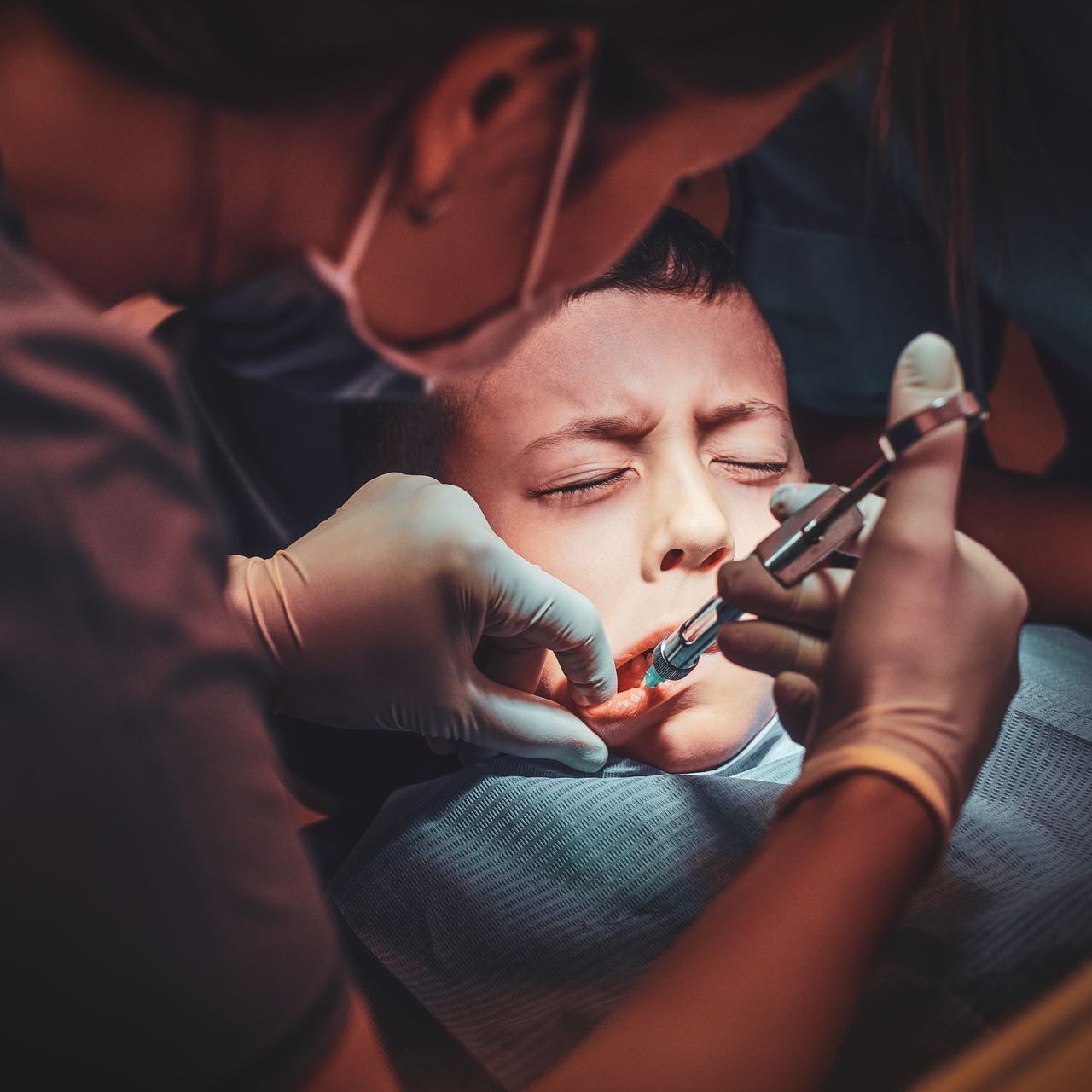
Why do I have anxiety over my teeth?
Depending on every individual's experience, dental anxiety may stem from various reasons. This may include one of the following.
Fear of pain
Pain is often one of the most common reasons why children experience dental anxiety during dental visits. This is because most children do not understand the difference between a painful dental procedure and a painless one. That being said, it is important to explain this to them clearly before their dental appointment.
Take the time to have an open and honest conversation with your child about pain during dental procedures. You can do this by reassuring them that dentists are trained professionals who only prioritise their comfort and well-being. Emphasise that modern dentistry has advanced techniques and tools that can eliminate pain during the procedure.
Lack of understanding
Most children don't have enough understanding of their dental condition and why they have to go to the dentist for it. As a result, they become self-conscious and get embarrassed about the condition of their teeth or gums.
To prevent certain instances like this, parents and guardians need to educate their children about the importance of oral health in order to keep their teeth and gums healthy. Explain the importance of brushing teeth every day, how often to floss, and how to practice dental hygiene to prevent going to the dentist.
Bad experience from previous dental visits
Negative experiences in the past can also lead to dental anxiety. If a child has had a painful or traumatic experience at the dental clinic, it could be enough for them to develop fearful feelings associated with dental care and dental treatment. This fear can then increase over time and your child may begin to start associating a regular dental appointment with discomfort, toothaches, or frightening noises instead of recognising the positive aspects of maintaining clean and healthy teeth and gums.

If your child has had a traumatic dental experience during a recent dental visit, it is crucial to identify the source of their anxiety and discuss their concerns with the dental team. By addressing these issues, you can help alleviate your child's dental-related anxieties and promote a more positive dental experience.
Fear of not having in control
For some children, feeling helpless, particularly when there are dental procedures involved, can induce dental fear. For these children, the thought of being confined to a dental chair for a prolonged period can be particularly frightening.
By actively involving your child in the dental treatment process, you can help them regain a sense of control and reduce their dental fear. For every dental appointment, try to actively involve your child and encourage them to ask questions so they can understand the dental treatment that will be taking place.
Creating a positive and supportive dental environment is also essential for building trust and reducing anxiety among anxious patients.
Anxiety disorder
Dental anxiety can impact individuals of all ages. But among those affected, children can be particularly vulnerable. Many adults with high levels of anxiety can attribute its origins to their early years, and parents who experience dental anxiety are most likely to pass on this sense of severe anxiety to their children.
Sometimes, when an individual already has an anxiety disorder, it can even be harder to get them to visit the dentist. That being said, it is important to understand that dental anxiety does not have to be treated any differently than other forms of anxiety. In fact, there are ways on how to practice anxiety management through a simple relaxation technique. In addition, parents can talk openly with their children about their fears and how they can work together to overcome them.
How common is dental anxiety in Australia?
Dental anxiety or also known as high dental fear is a prevalent condition in Australia that affects nearly one in every six adults and one in ten children. Although the occurrence of this dental phobia can be influenced by various patient characteristics such as age, gender, education, and socio-economic status, it is essential to acknowledge that it can affect anyone, regardless of these factors.
How do I talk to my dentist about dental anxiety?
Sometimes, there is no other way to relieve your dental anxiety but to talk to your dentist about it. Anxious patients know that sharing their fears and anxiety can actually make a big difference. By being honest with your dentist about how you feel, they can work together to help alleviate your worries and concerns.
There is no better person to understand your situation rather than your dental team so make sure that you let them know your needs beforehand. Don't be afraid to ask as many questions as you need to, and don't hesitate to provide feedback on what makes you feel comfortable or uncomfortable during the appointments.
What is the fear of going to the dentist?
Dental Phobia is an irrational fear of the dentist that causes an individual to experience severe fear, stress, anxiety, and even panic attacks. It primarily occurs to individuals who are afraid of anything that is related to dental treatment or simply going to the dentist. Whether the dental fear was caused by previous trauma or a fear of the unknown, dental phobias can be treated by working with a therapist and/or dentist to help reduce the anxiety.
Conclusion
Dental anxiety is a common issue that can affect anyone regardless of their age. When not addressed immediately among children, it can have severe consequences on dental health, personal relationships, and overall well-being. Whatever factor caused you or your child's dental anxiety, there are various ways to cope with it and overcome the fear.
Some effective techniques that can help manage it include cognitive behavioural control and therapy, relaxation, and sedation. By understanding the cause of dental anxiety and finding solutions that work best for your child, you can help transform their fears into a better dental experience.
Our Services
Dental Articles
All Rights Reserved | Mawson Dental Care I ABN 92191788198










